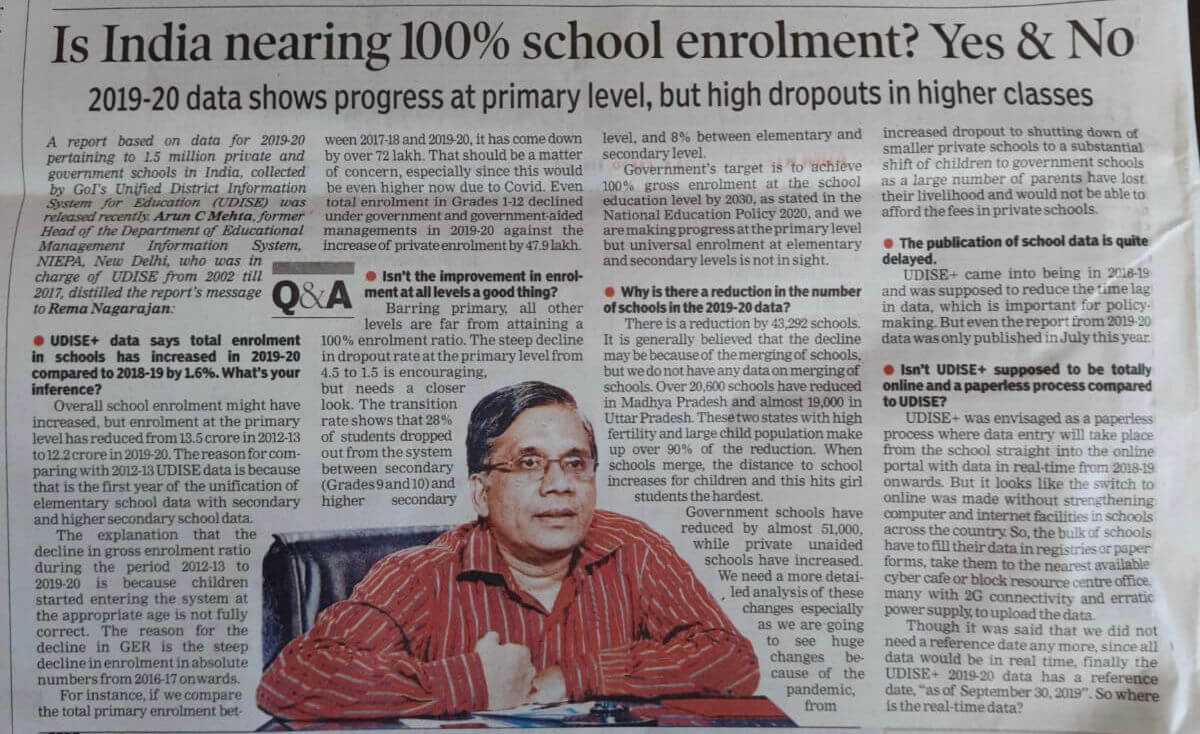Micro planning
7.5.13 Micro planning is a process of designing “a family-wise and child-wise plan of action” by which “every child regularly attends school or NFE center, continues his/her education at the place suitable to him/her, and completes at least 8 years of schooling or its equivalent at the non-formal center.” A revenue village would be ideal for specific planning; however, micro planning for UEE may be carried out at the Block, Taluk, District levels. Within this area the steps by which this micro level planning will be operationalised are:
i) The Village Education Committee and similar participatory structures at Block, Taluk and District levels would play an important role in operationalising micro planning.
ii) Mobilizing community participation through environment building activities such as jathas, street plays, folk songs, etc.
iii) Ascertaining educational requirements of the areas through a family-wise survey to be conducted with the help of the community.
iv) Bringing to school all children who can be enrolled, and providing NFE centers or other innovative and supportive channels for those who cannot go to school.
v) Ensuring that all children, specially girls and SC/ST children, regularly and actually participate in elementary education.
vi) Planning for the improvement of schools or NFE centers so that effective learning takes place.
vii) Reorienting and strengthening local level administrative and resource support systems.
viii) Decentralizing educational administration.
ix) Integrating all the schemes being implemented in the area which would contribute to the improvement of school system (e.g. Operation Blackboard, JRY, ICDS, Social Forestry, Health Check-up etc.).
7.5.14 In most of the total literacy campaign (TLC) districts, a positive environment has already been created for taking up Micro planning Projects. Many District Literacy Societies who have launched the TLCs have shown keen interest in elementary education and some of them have submitted project proposals under Micro planning to the MHRD. The initiative shown by these societies needs to be encouraged. DIETS/SCERTS and voluntary agencies will also be involved in the implementation of this programme.
7.5.15 Micro planning can be effective only when there is total integration of efforts and resources – human and financial from all quarters. While centrally sponsored schemes, OB, JRY, NFE, etc. will provide the major share of funds for improving school facilities and access, the State Governments will provide resources for opening new schools. Additional resources required for survey, environment building, training of VEC members, etc. will be provided by the Centre under this scheme.
7.5.16 Micro planning will be made operational in about 20 project areas on an experimental basis during 1992-93. Based on the experience gained during the course of implementation it will be expanded to cover about 100 districts during the 8th Plan. In due course the entire country will be covered, thus ensuring universal access and enrolment, and universal retention.





